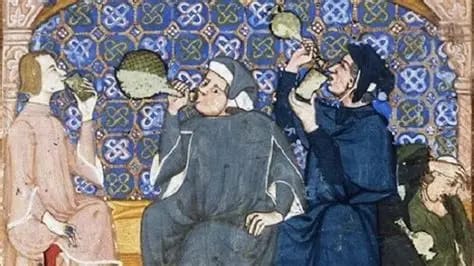- The Kentucky Dude
- Posts
- Medieval Booze: Were They All Just Hammered?
Medieval Booze: Were They All Just Hammered?

Medieval Booze: Were They All Just Hammered?
Everyone swears medieval people drank beer because water was considered poisonous. The truth is, they knew water was fine; beer and wine just added calories and social status.
Alcohol was common, but not because they were party animals.
Wine was for the rich, water for the poor, but even nobles still drank water daily.
Paul of Aegina, a 7th-century physician, referred to water as “of most use in every mode of regimen,” indicating that it was respected as a healthy element (Vintage Medium, 2024).
Beer and ale were popular because they provided calories and could be stored for weeks.
Reddit’s AskHistorians group has explained that even knights brewed beer, but it was for nutrition and hydration, not because everyone wanted to be sloshed 24/7.
Alcohol also played a role in medicine. Wine mixed with herbs was prescribed for stomach issues, and weak beer was considered safer than stagnant water in densely populated towns.
But constant drunkenness? Not likely.
Medieval laborers needed clear minds to work on farms, build cathedrals, and survive the harsh winters.
Medieval people weren’t hammered all day. They drank beer because it made sense in terms of calories, hydration, and a little buzz at the end of the day.
Water was safe, but beer was just better fuel. So no, they weren’t hammered. They were just practical.